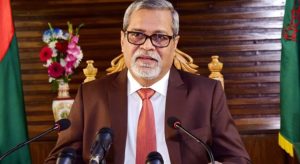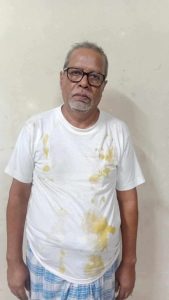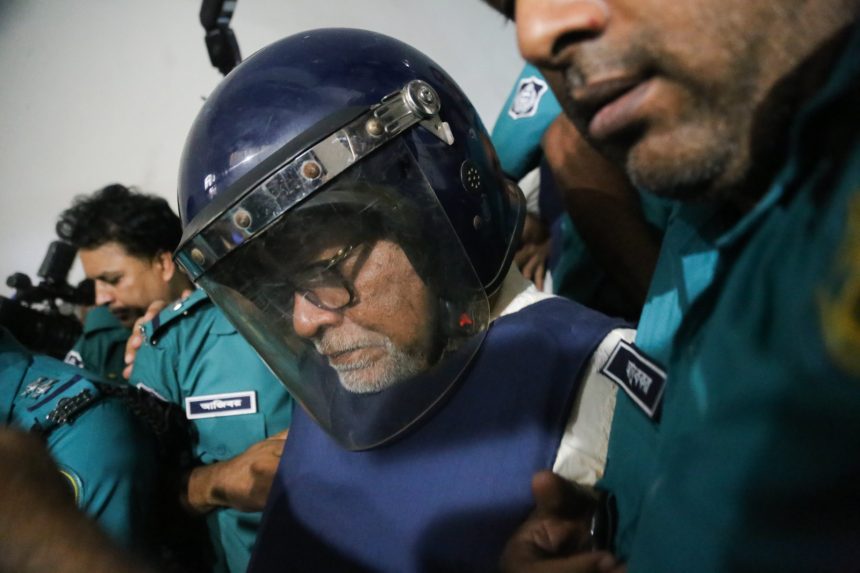Former Chief Election Commissioner KM Nurul Huda confessed before a Dhaka court that the 2018 parliamentary elections saw “day’s votes cast at night” under the direct influence of the ruling Awami League and with the involvement of intelligence agencies and sections of the administration.
In a confessional statement under Section 164 recorded on Tuesday by Additional Chief Metropolitan Magistrate Md Ziadur Rahman of Dhaka’s CMM Court, Nurul Huda described systematic irregularities that, in his words, “questioned the acceptability of the election.”
The eleventh parliamentary elections were held on 30 December 2018. Allegations of ballot-stuffing the night before polling day had drawn widespread criticism in Bangladesh and abroad at the time. Nearly seven years later, the former CEC himself brought these irregularities on record before the court, according to sources familiar with his statement.
Nurul Huda was arrested on 22 June in connection with a case filed by a BNP leader at Sher-e-Bangla Nagar police station over alleged rigging. During his court appearance the following day, he said the 2018 election had become controversial, though he denied that the Election Commission was solely responsible. Police later interrogated him for eight days in remand, after which he remains in jail. Former CEC Kazi Habibul Awal has also been jailed in the same case.
In his statement, Nurul Huda alleged that “the then-ruling party systematically planned the 2018 election irregularities in collusion with some dishonest officials of the administration and police.” He added, “I believe that through these irregularities, day’s voting was completed at night, and in some areas 100% turnout was shown, which raised serious questions.”
He claimed certain overzealous public officials also became involved. Referring to the role of the National Security Intelligence (NSI) and the Directorate General of Forces Intelligence (DGFI), Huda said: “I later realised that the entire election process had been controlled through NSI and DGFI officers. There was rigging and irregularities. Day’s votes were cast at night, and abnormal voting was shown in some constituencies.”

The DGFI operates under the Ministry of Defence, while the NSI reports to the Prime Minister’s Office. Usually, the prime minister holds the portfolio of the Ministry of Defence, as was the case with Sheikh Hasina.
During the 2018 election, Major General (Retd.) Md Saiful Abedin was DG of DGFI, and Major General (Retd.) T M Jubaer was DG of NSI. The Anti-Corruption Commission (ACC) is now investigating Jubaer over allegations of illicit wealth, with his bank accounts frozen and a travel ban imposed.
Nurul Huda’s statement also implicated members of the police force. He said police officers at the time failed to inform him of the real situation and in some cases “stuffed ballot papers into boxes the night before.” Huda claimed he had received reports that before the polls, police indiscriminately arrested BNP activists, and despite raising concerns with senior police officers, he was told those arrests were under court warrants.
He further stated: I or members of my commission were kept in the dark during this entire chaotic and irregular situation. We felt extremely embarrassed. Since after the publication of the gazette the Election Commission has no power to cancel the results, I could not annul the election.
Nurul Huda added that returning officers and assistant returning officers “created scope for vote rigging” by acting under the ruling party’s influence, keeping the commission in the dark.
When explaining why no direct complaints came to him at the time, Huda speculated: Field-level officials and employees may have been paid to stay silent, without my knowledge. Many were also afraid of losing their jobs due to political pressure.

He said he believed the benefits of the rigged election were “centrally organised” and involved those who were in power then.
Nurul Huda also mentioned to the court that his nephew, S M Shahzada, contested the 2018 election from Patuakhali-3 under the Awami League’s boat symbol, although he claimed no personal involvement in arranging that nomination.
Helal Uddin Ahmed, who was the secretary to the Election Commission in 2018, is currently in jail facing charges in a murder case after the collapse of Sheikh Hasina’s government. Nurul Huda told the court he found Helal Uddin’s role “suspicious” because, as a cadre of the administration, he could influence returning officers.
He concluded by saying: To hold a truly neutral election, the goodwill of the government is essential. Under the provocation and interference of the ruling party, some enthusiastic government employees became involved in irregularities.
Nurul Huda’s lawyer Obaidul Islam told media that his client was arrested only to harass him and declined to comment on whether Huda had implicated himself in the statement.
On the other hand, Chief Public Prosecutor Omar Faruq Faruqui said that although Nurul Huda knew about these irregularities, he took no action– rather, he oversaw the election in a way that secured Sheikh Hasina’s continuation in power.


